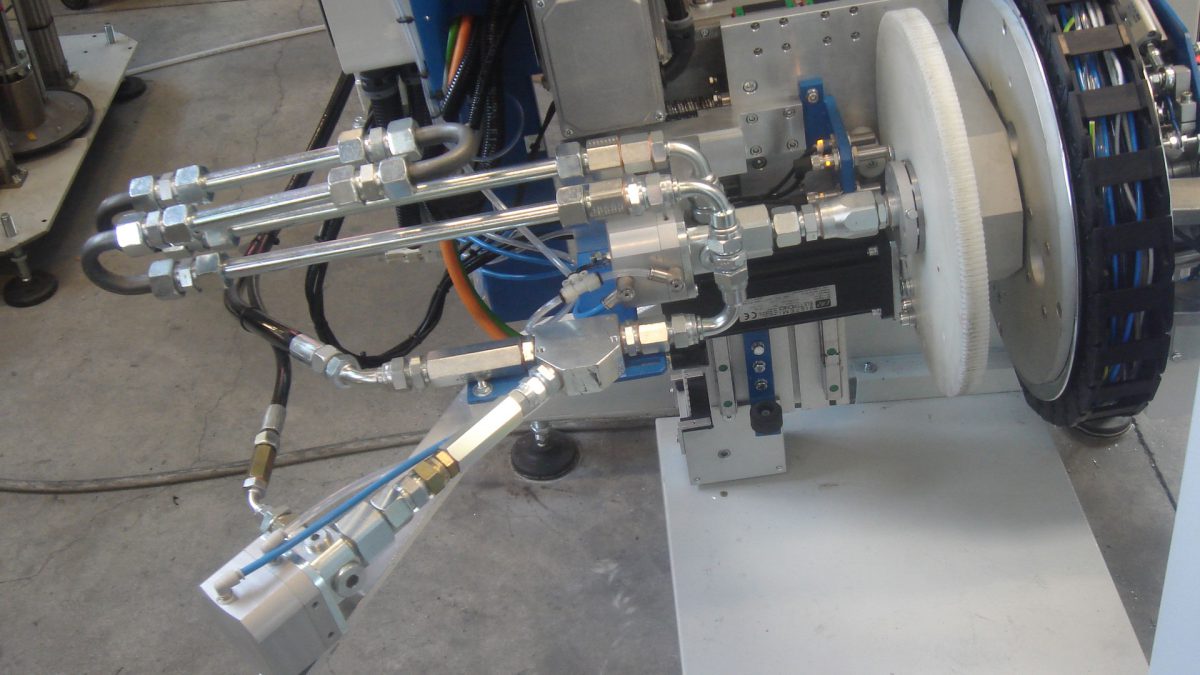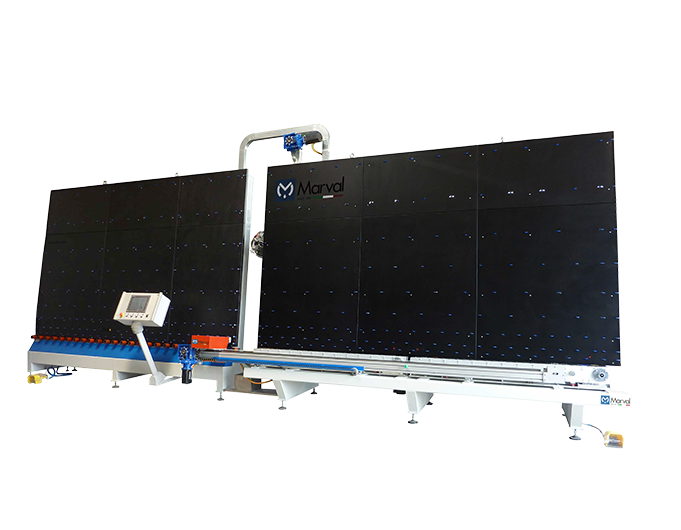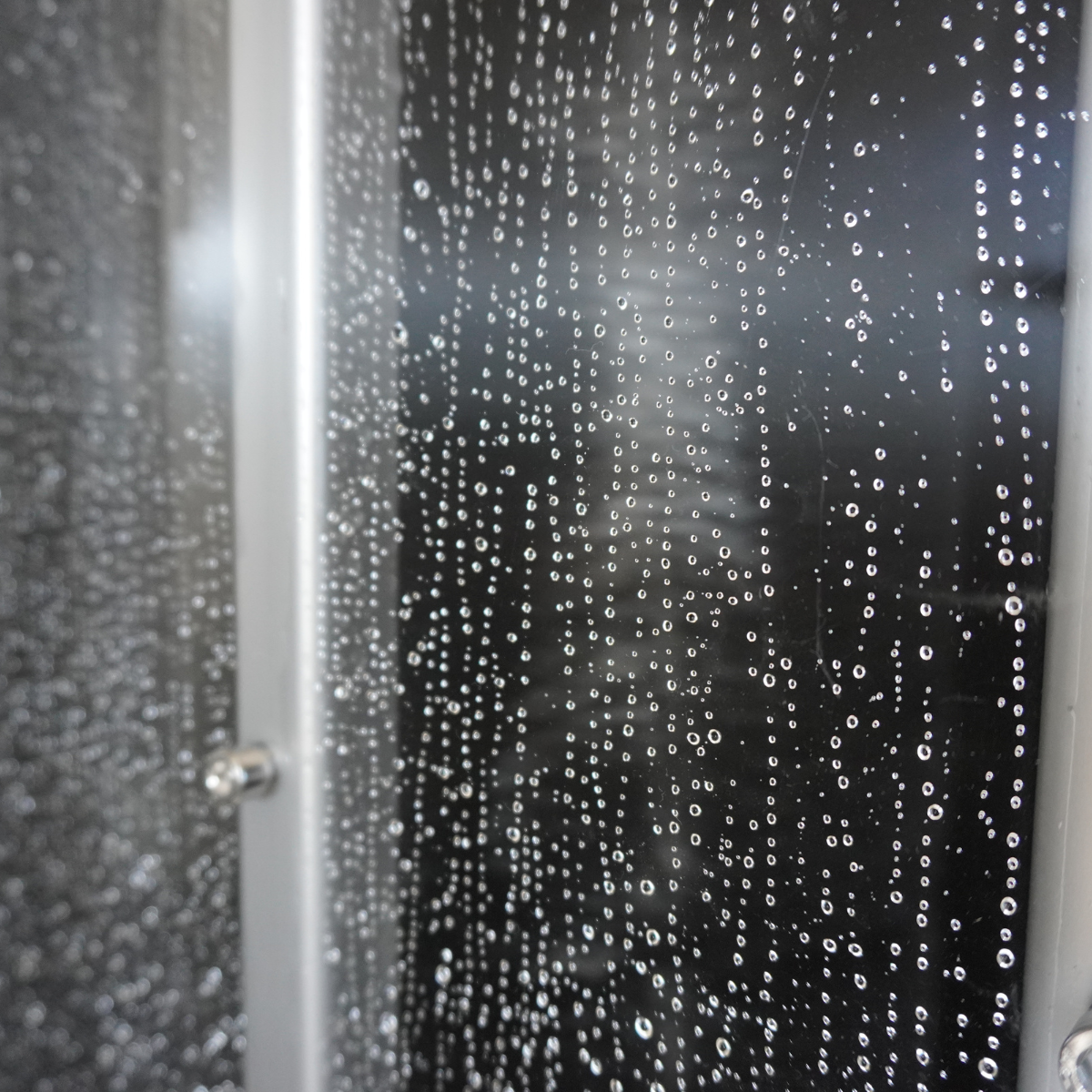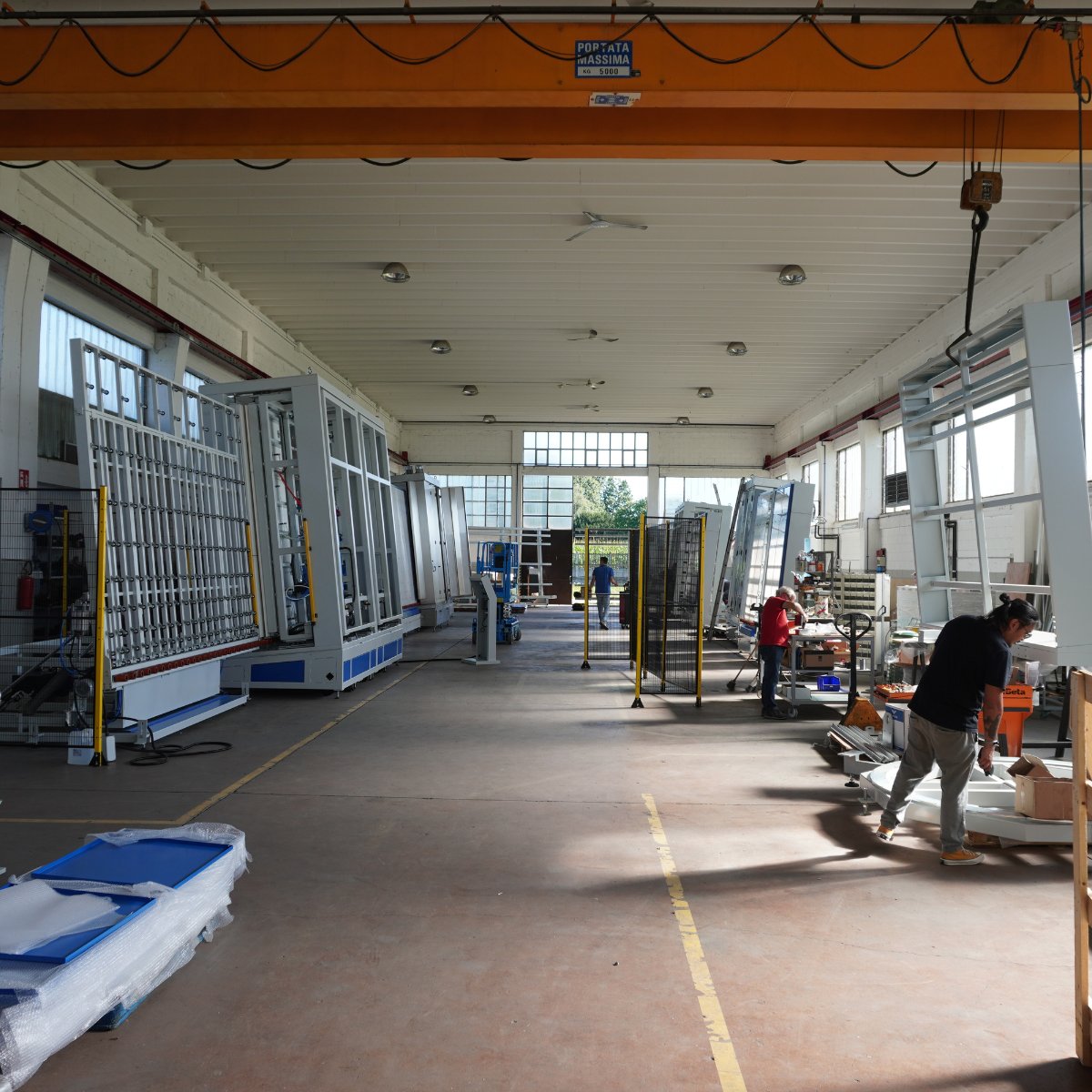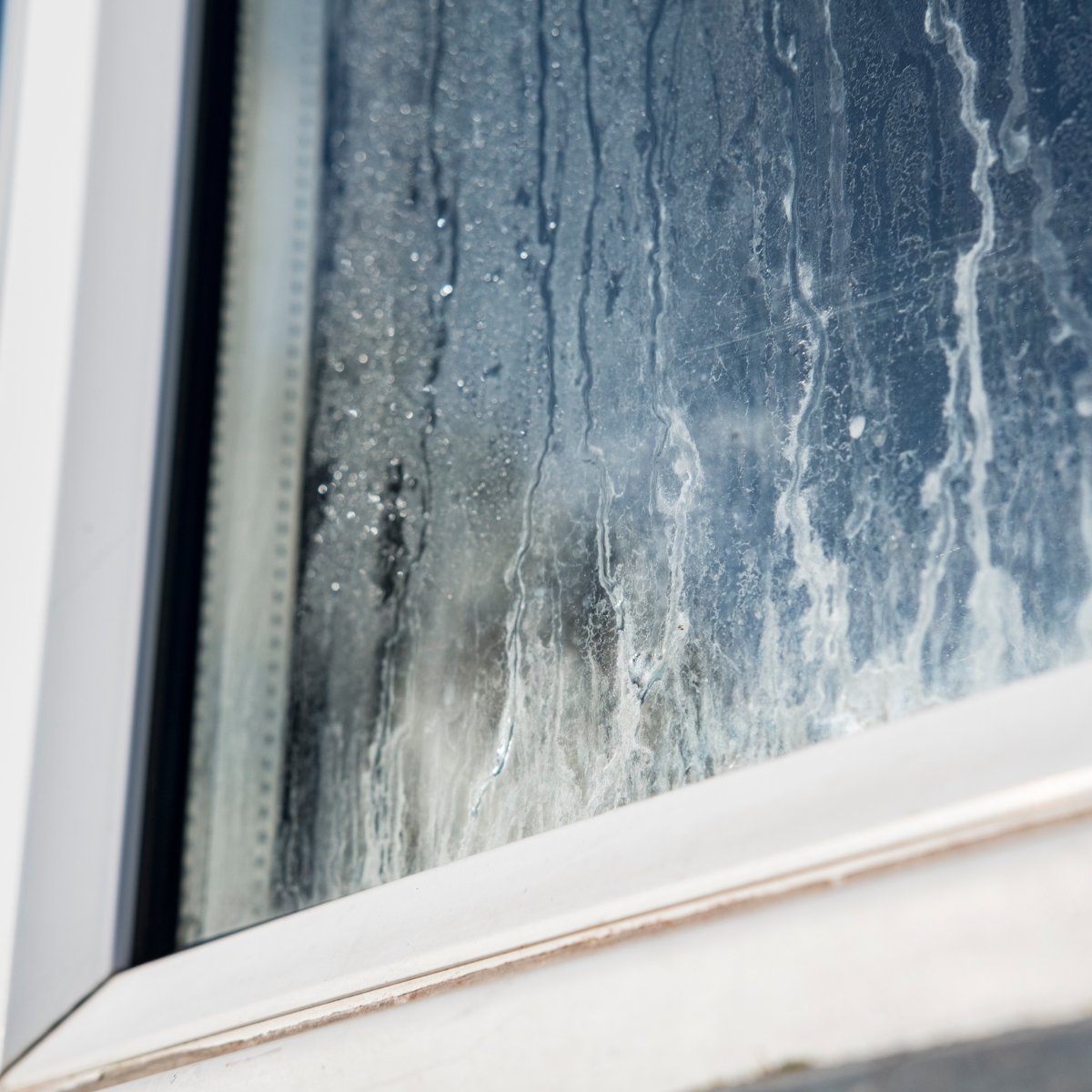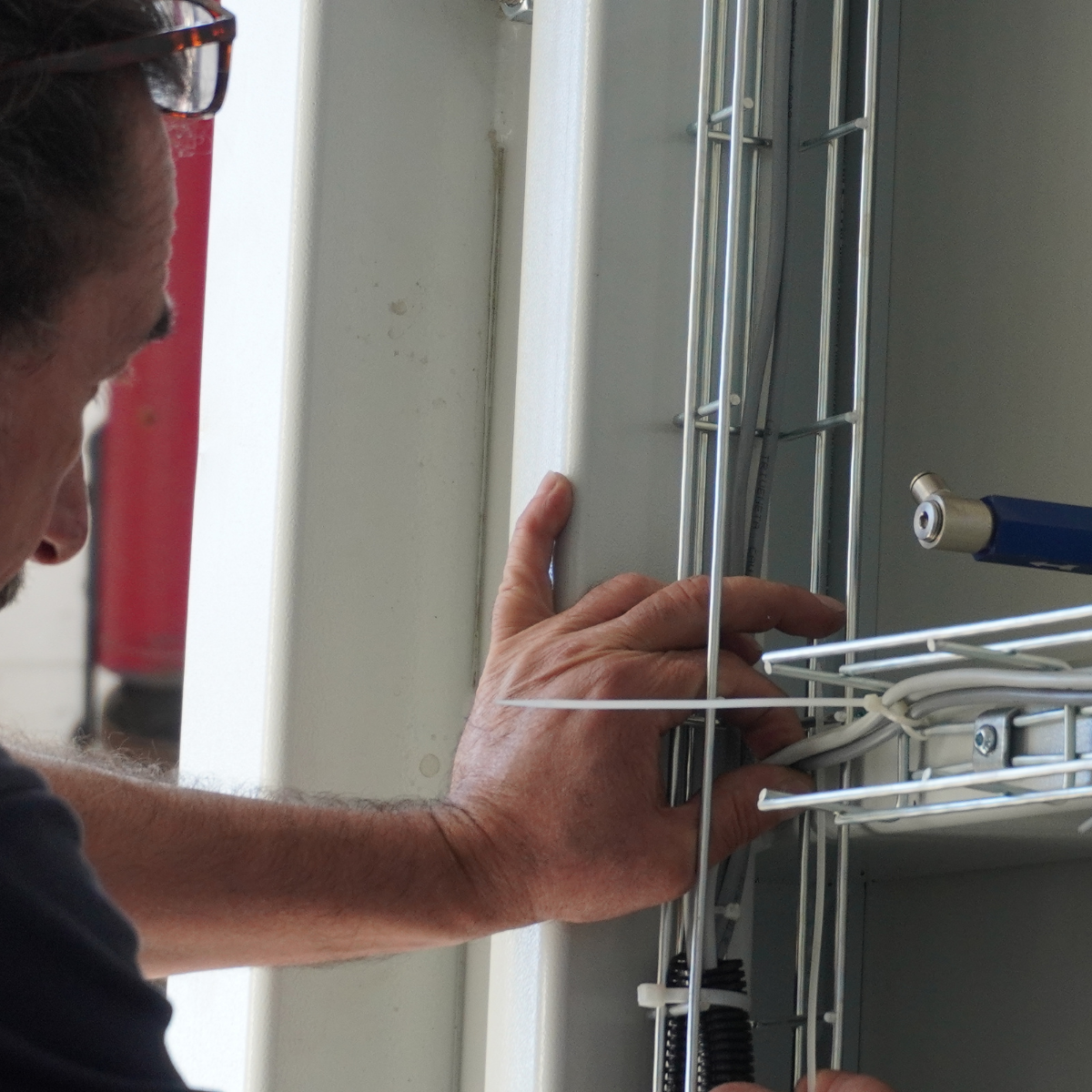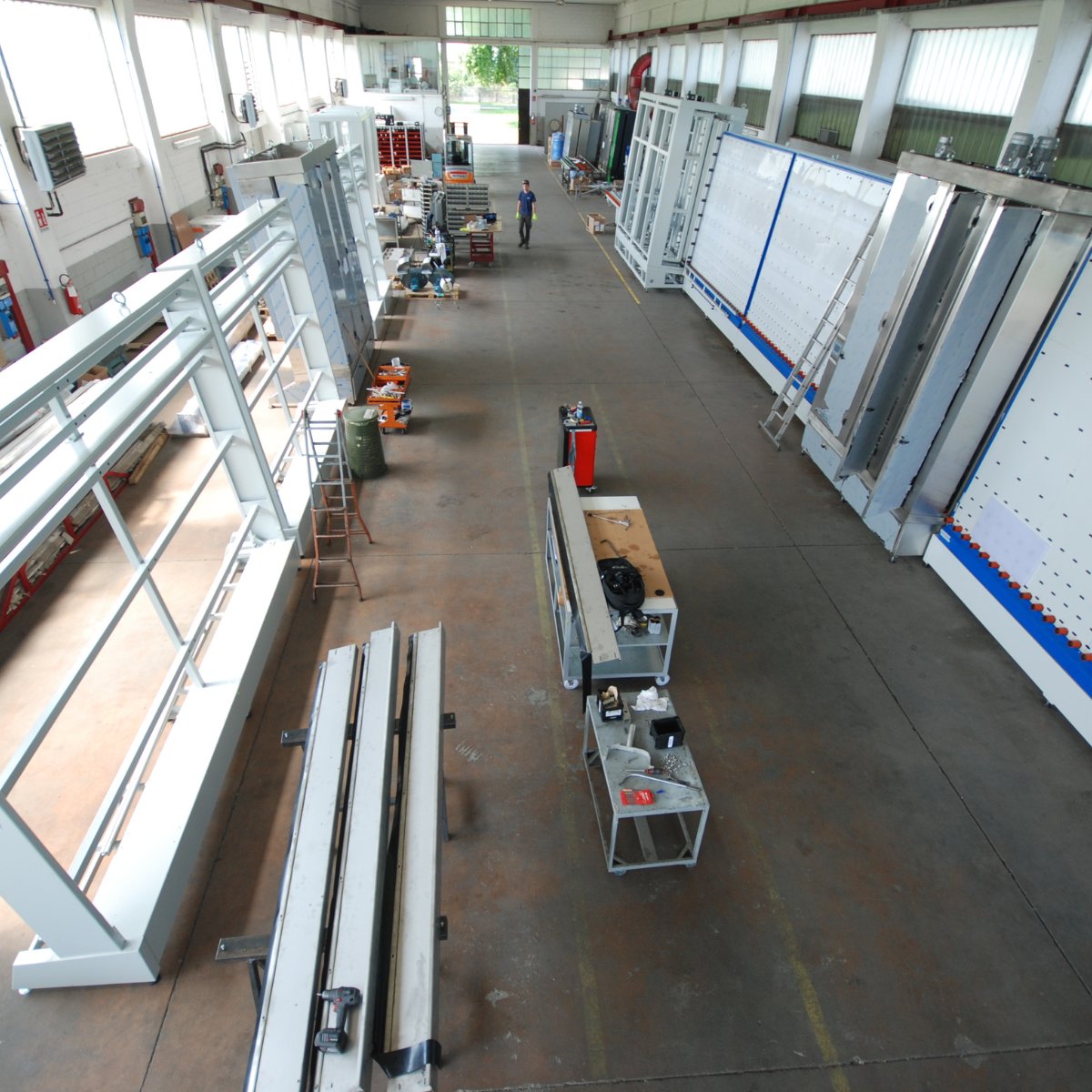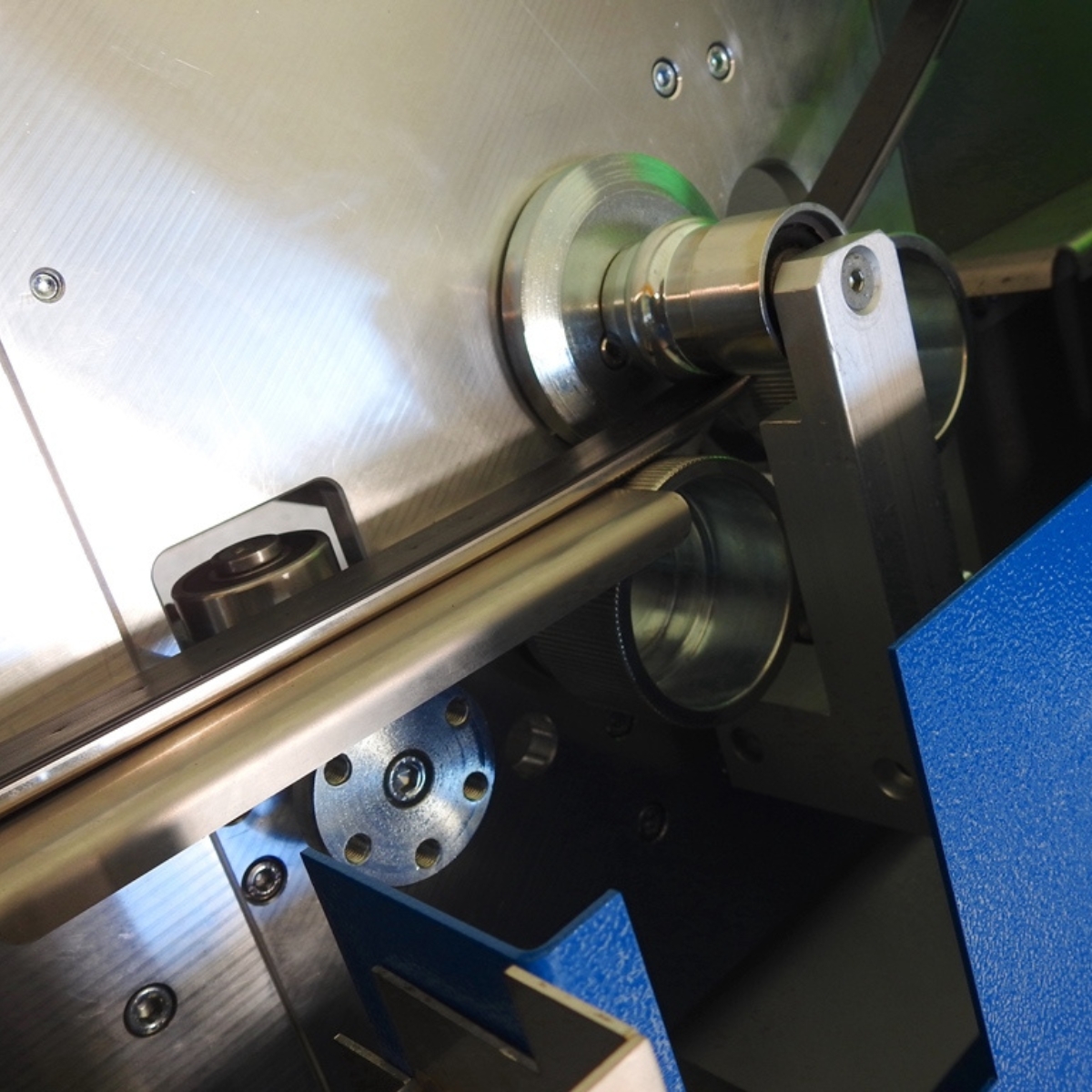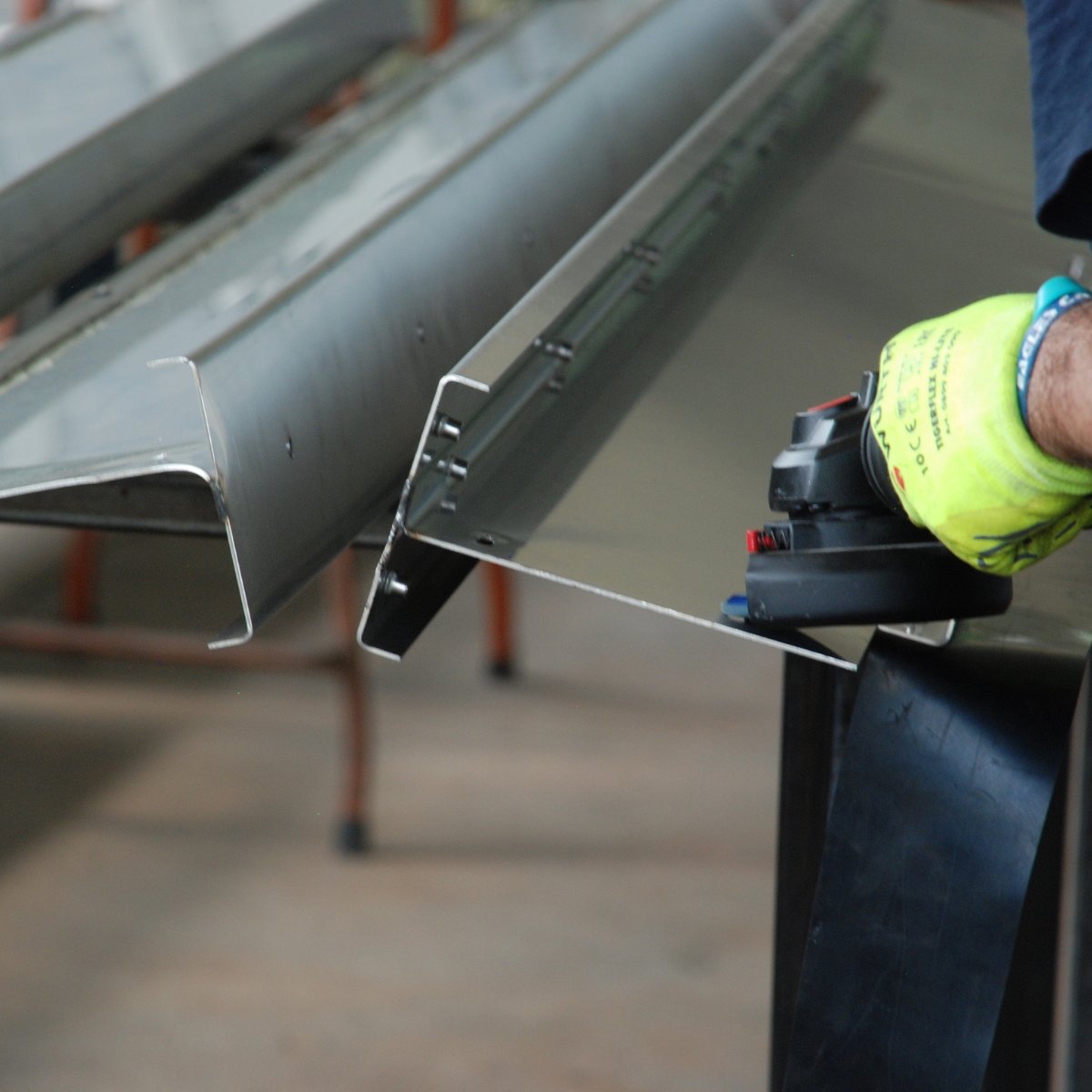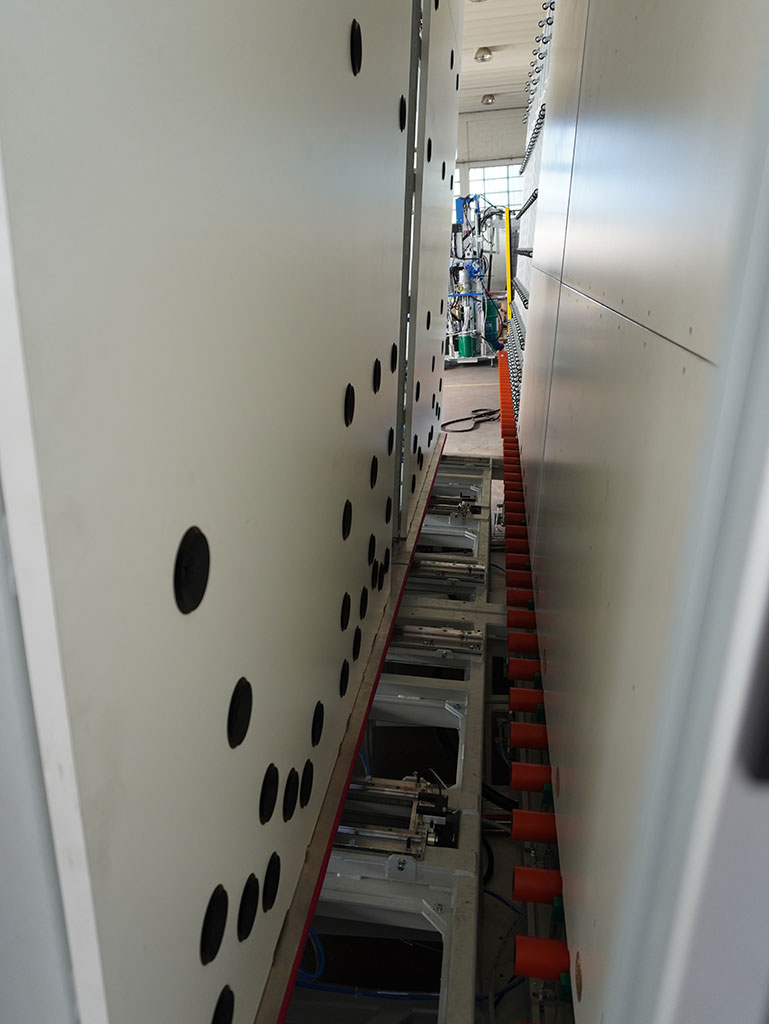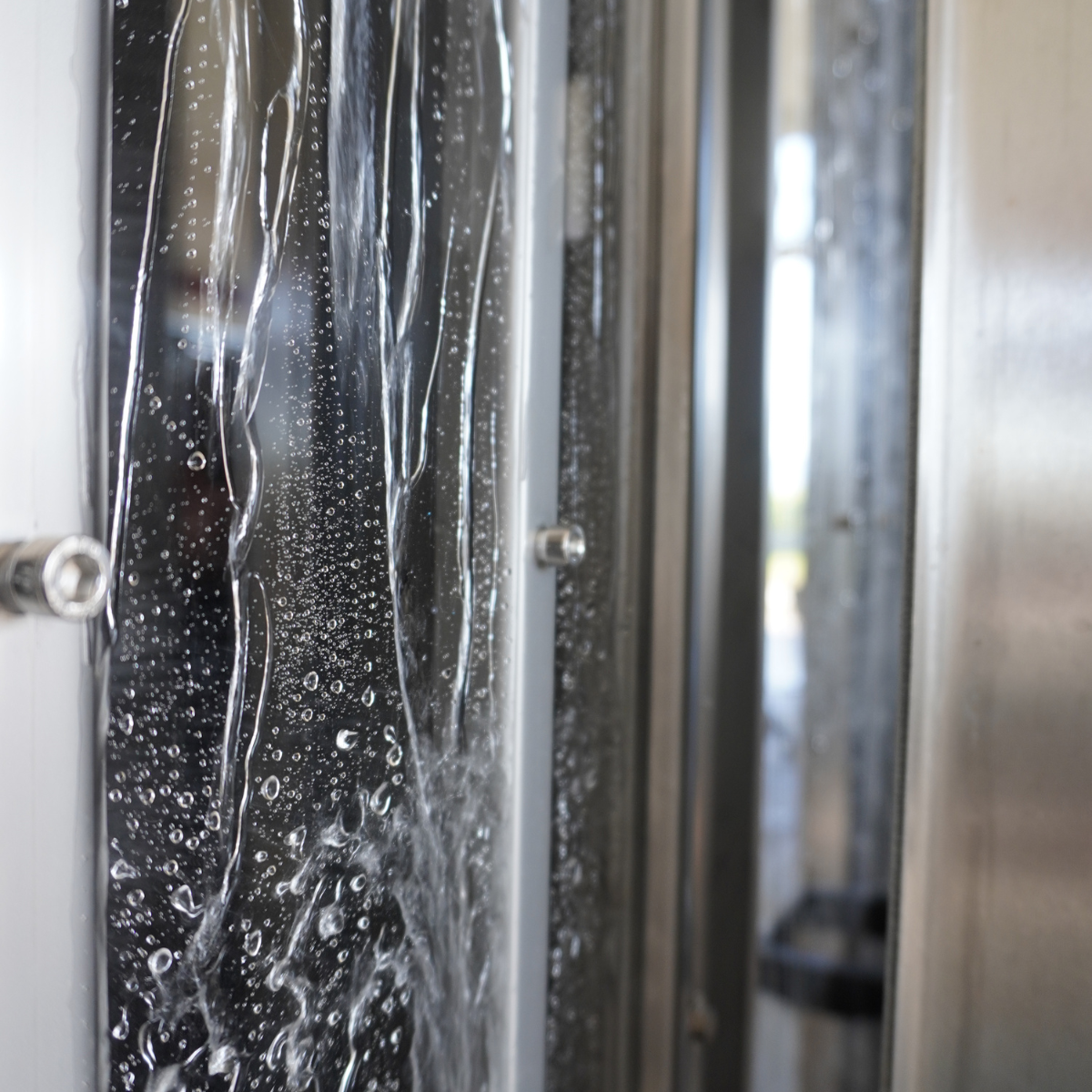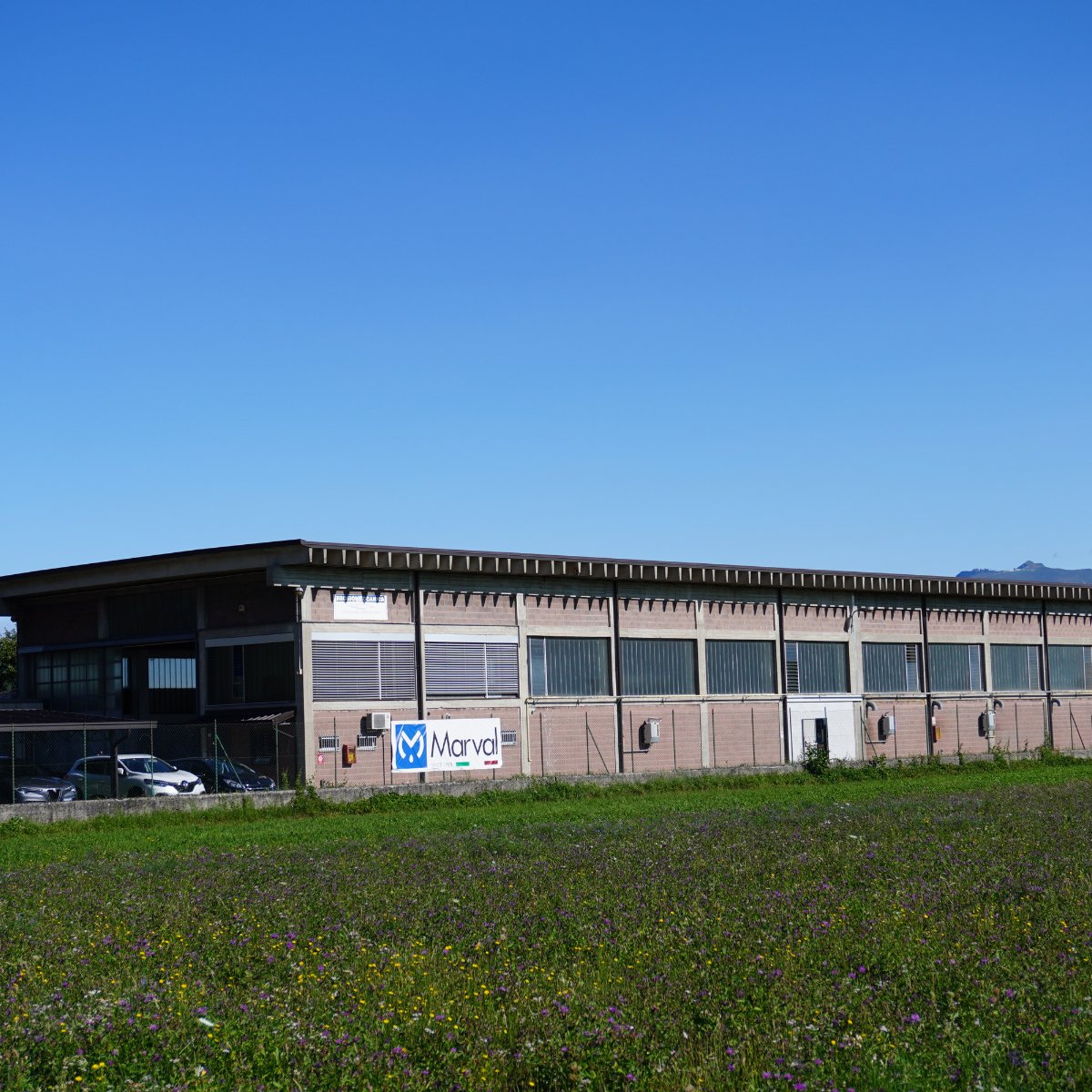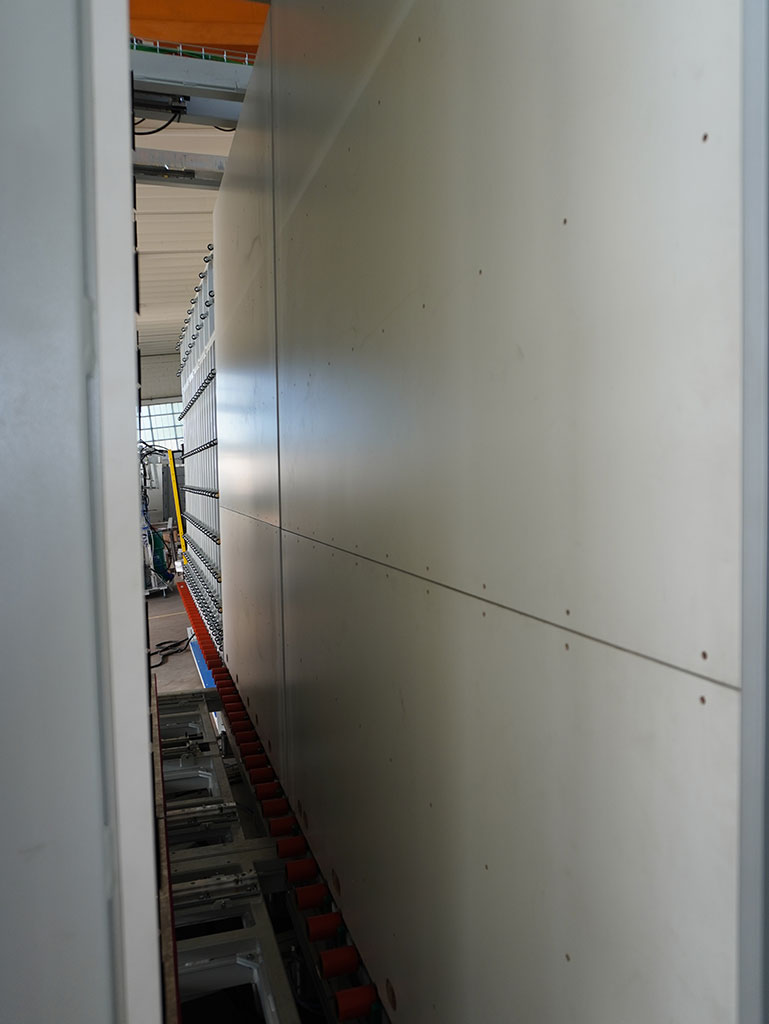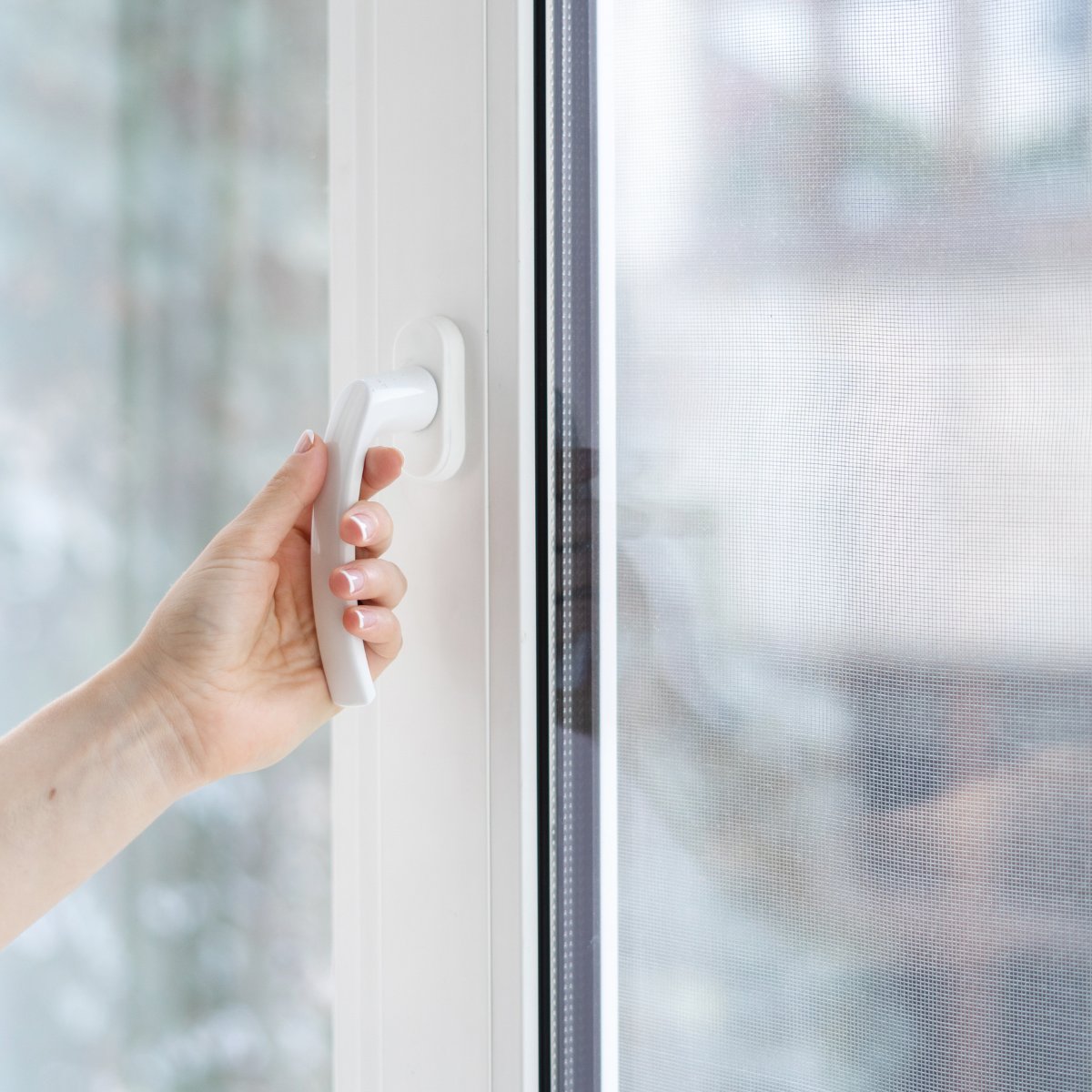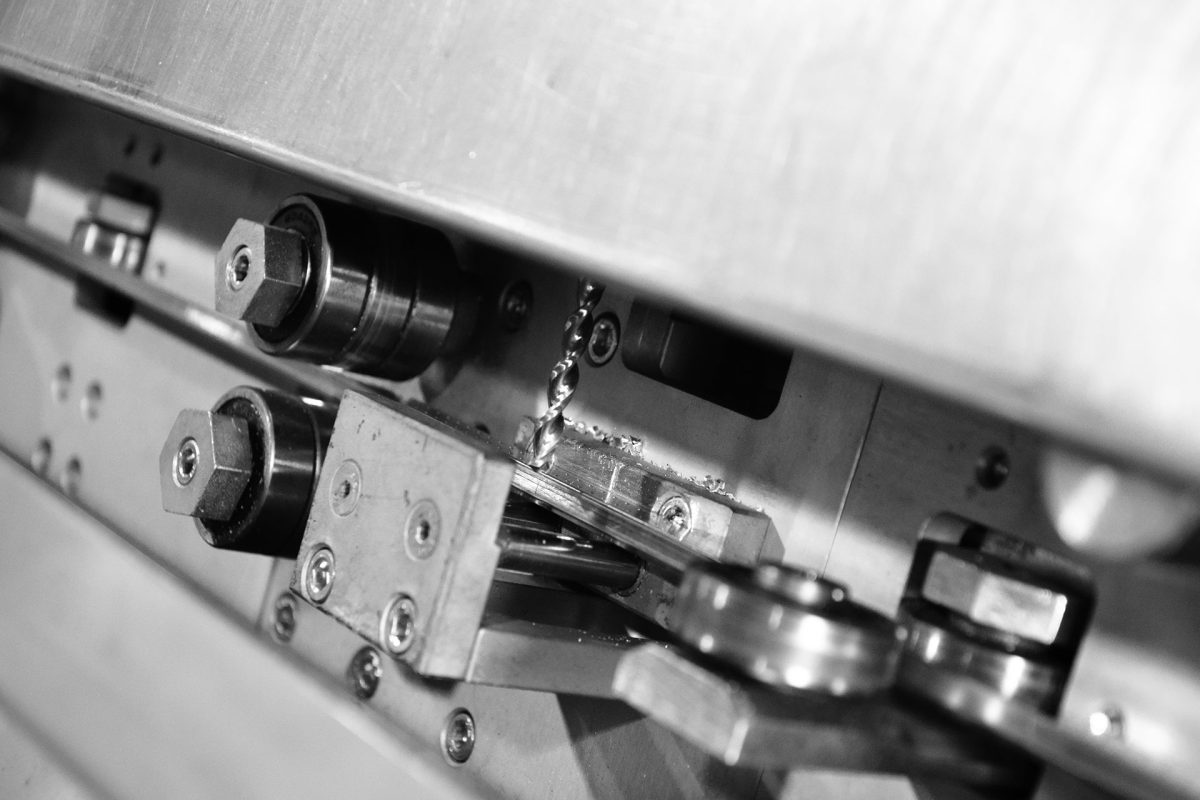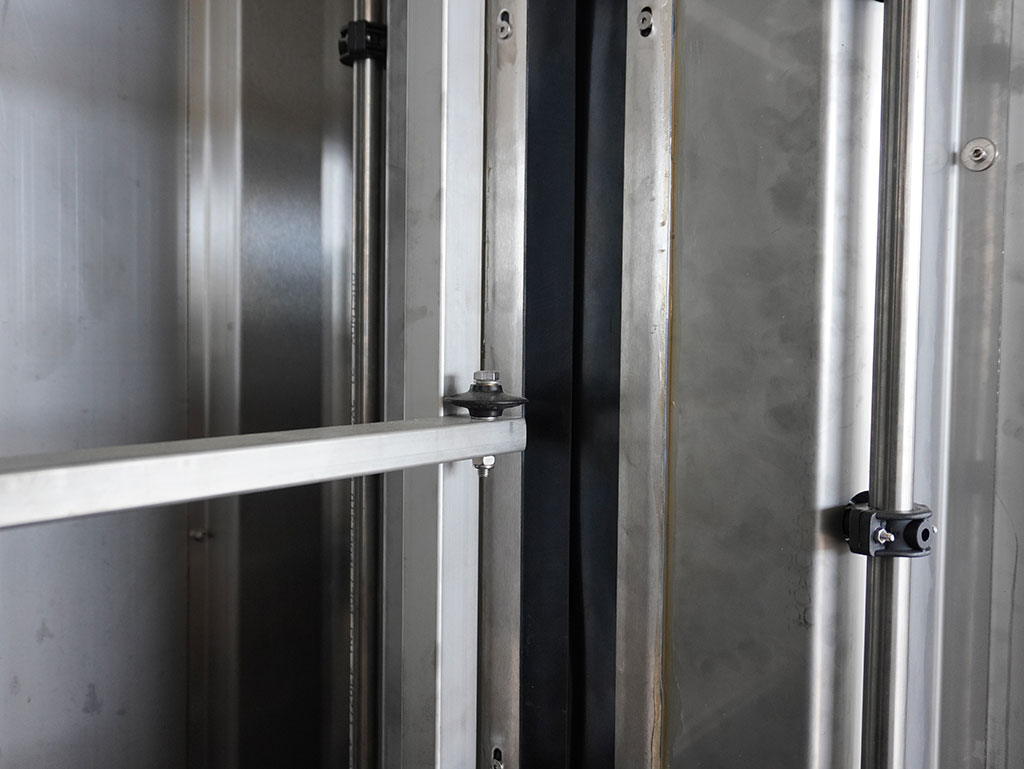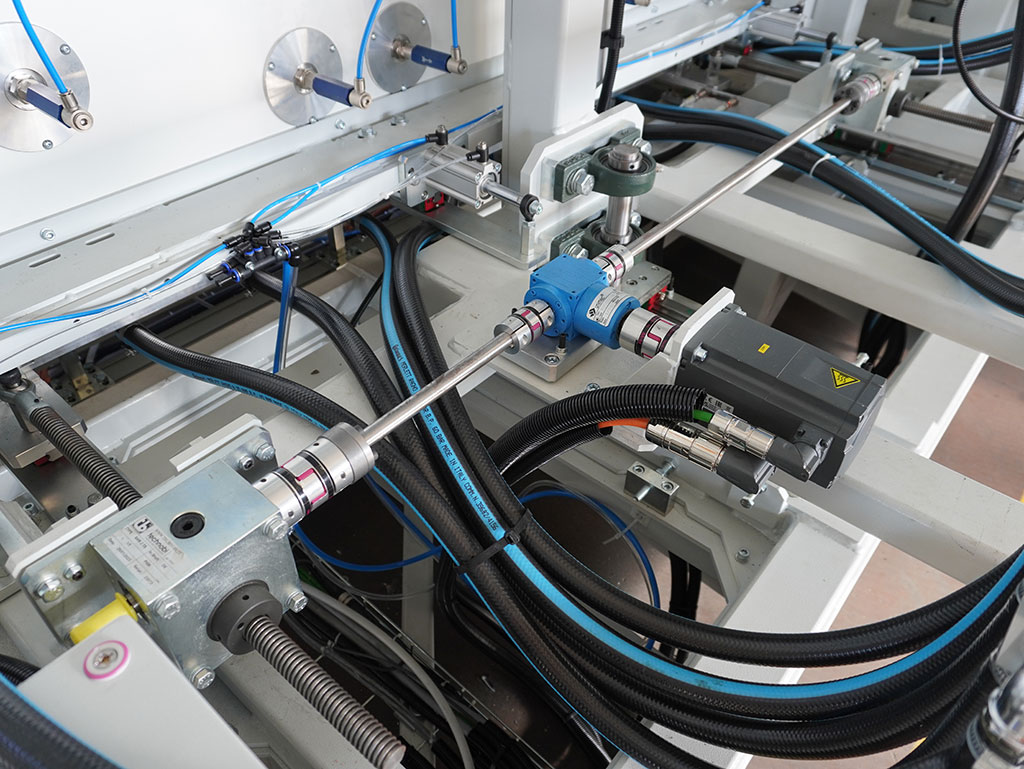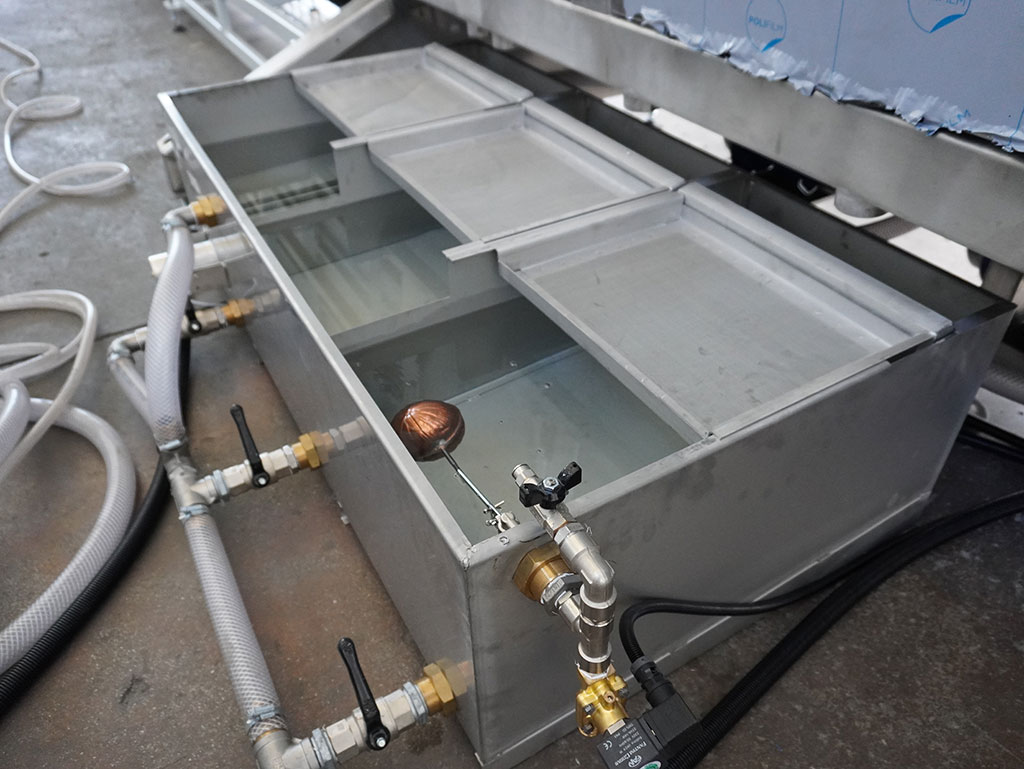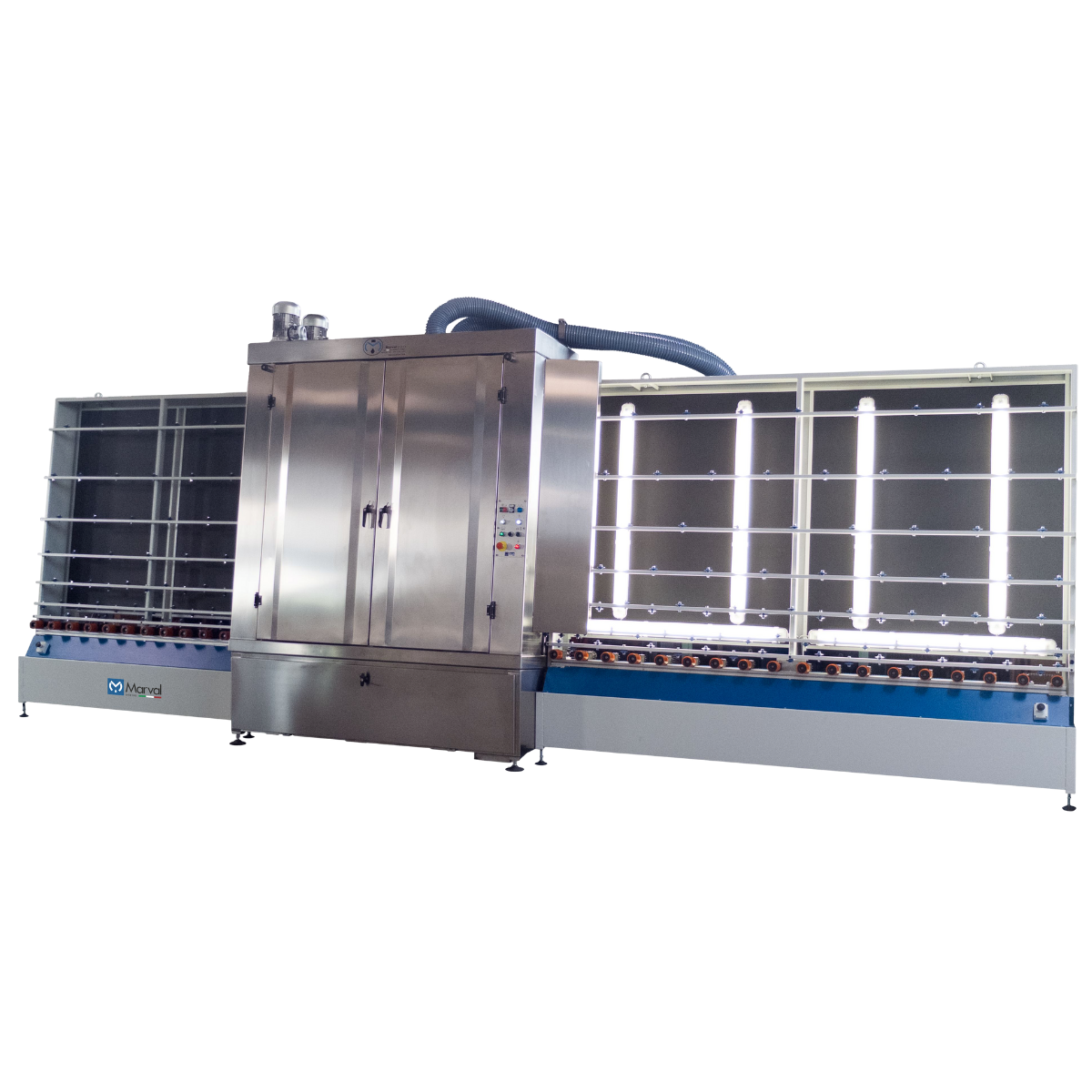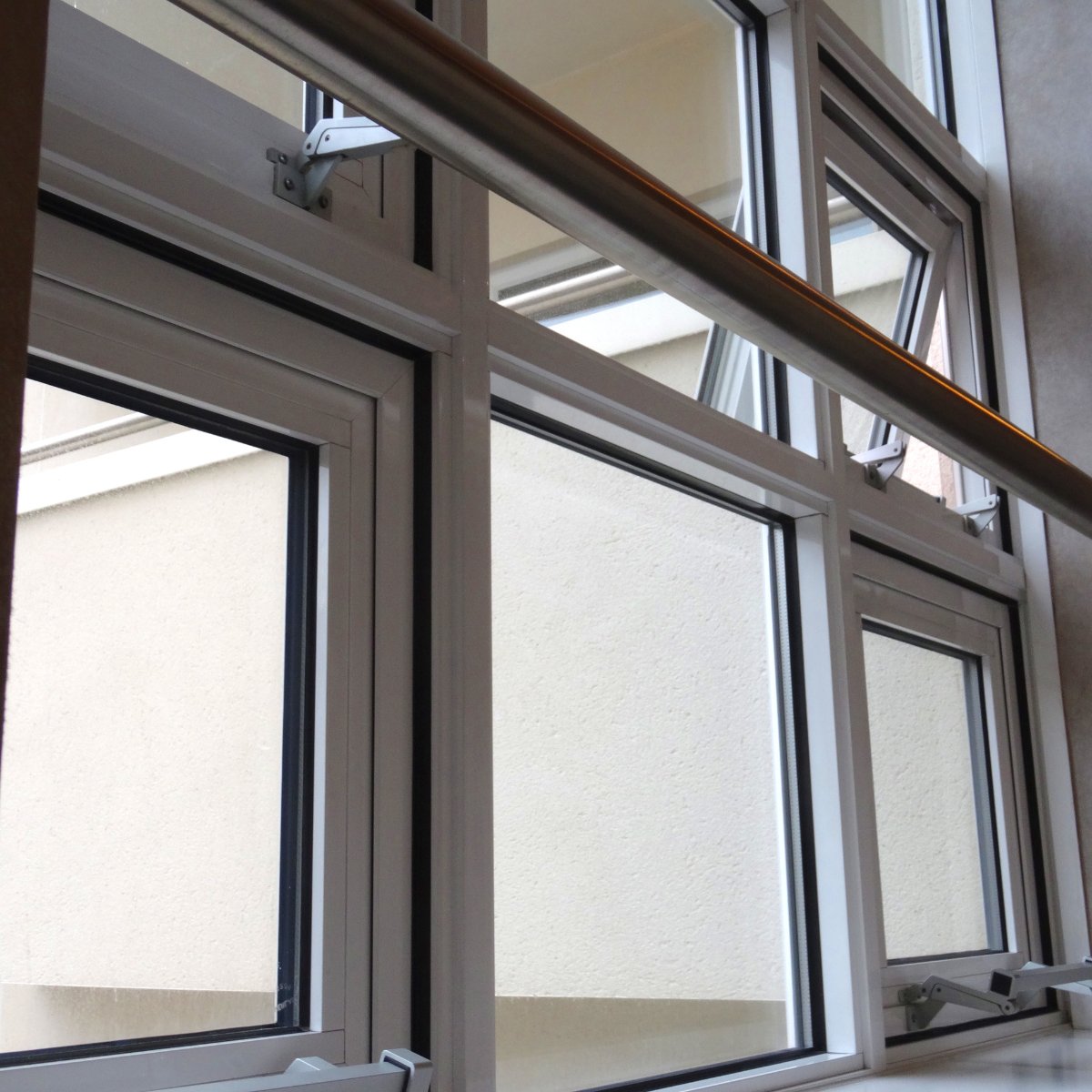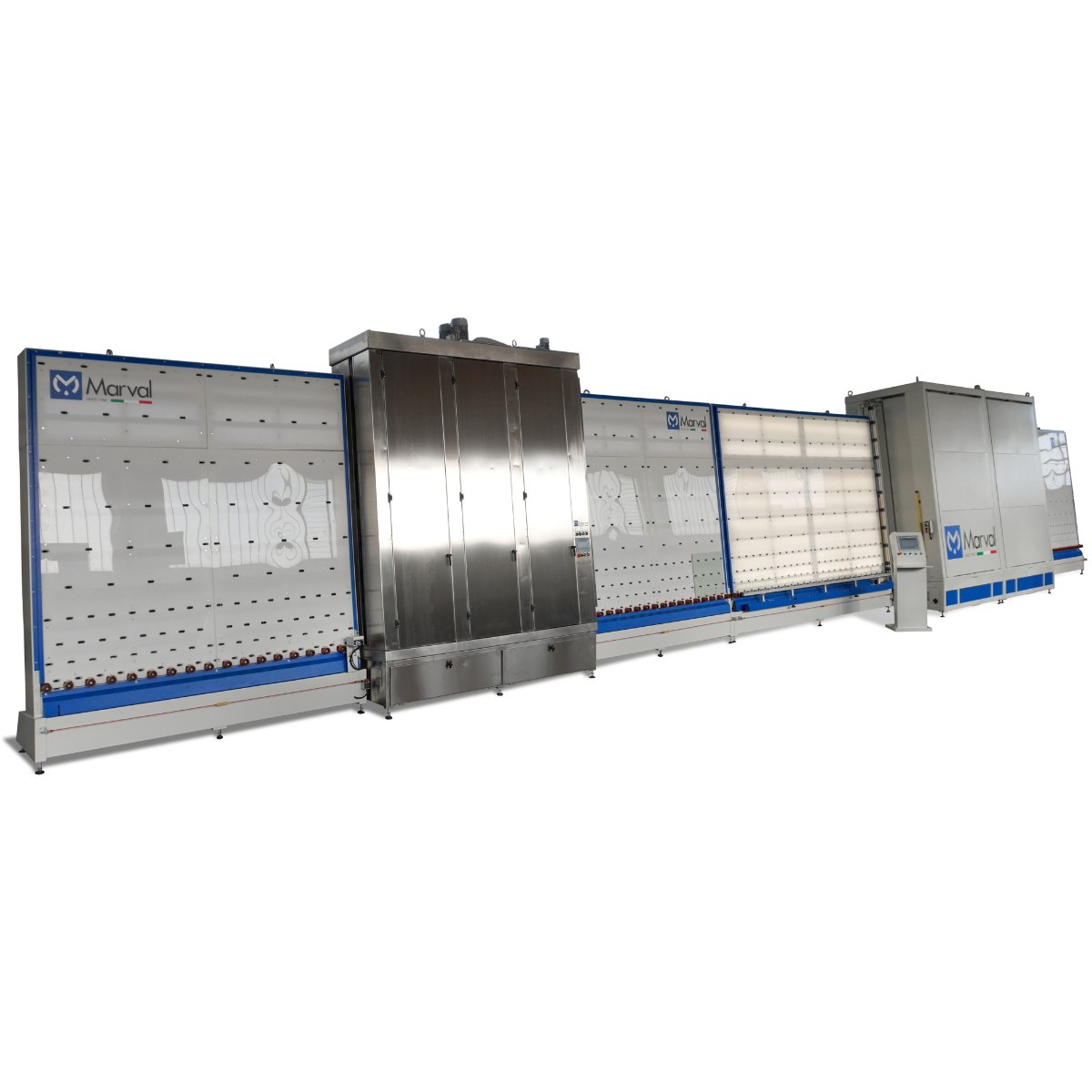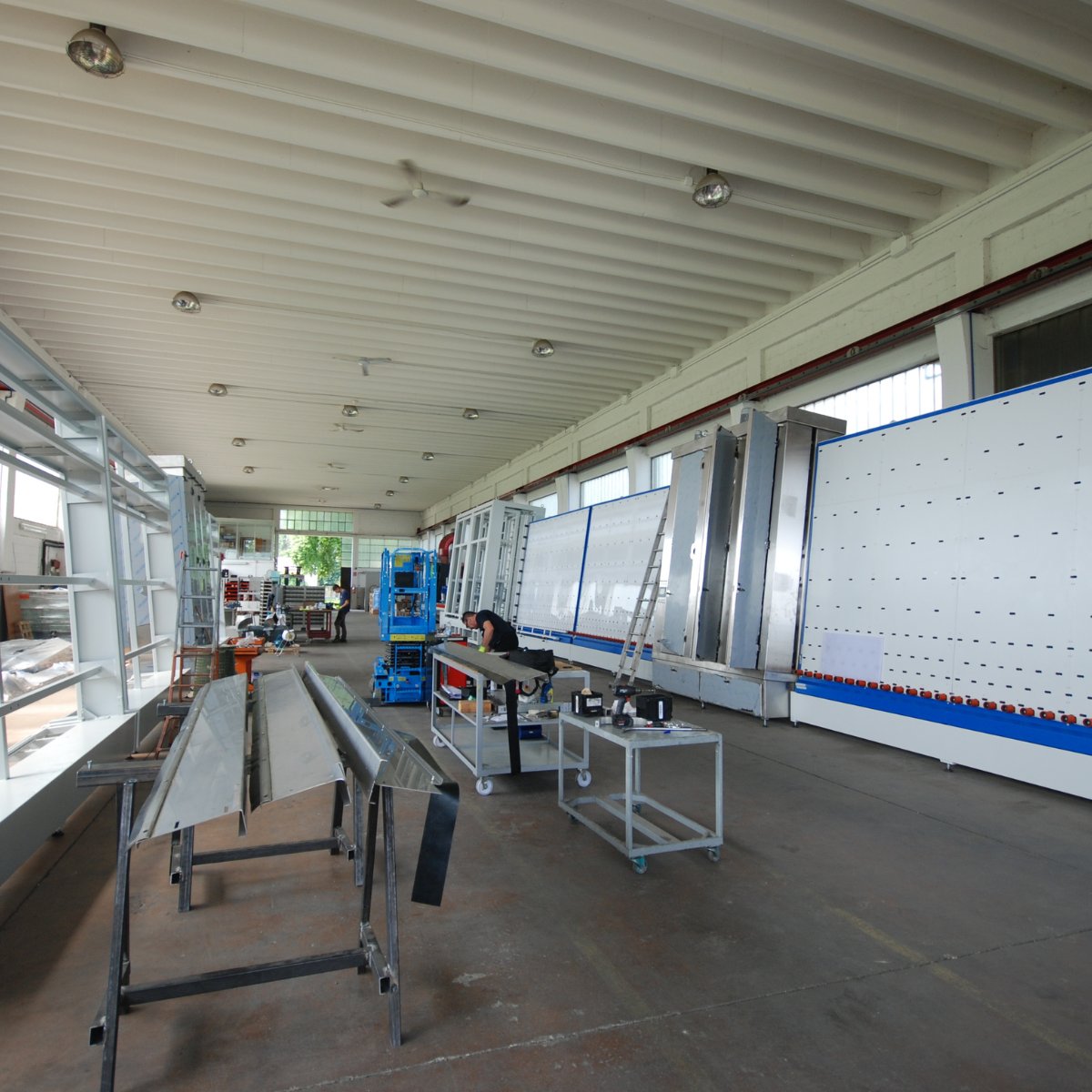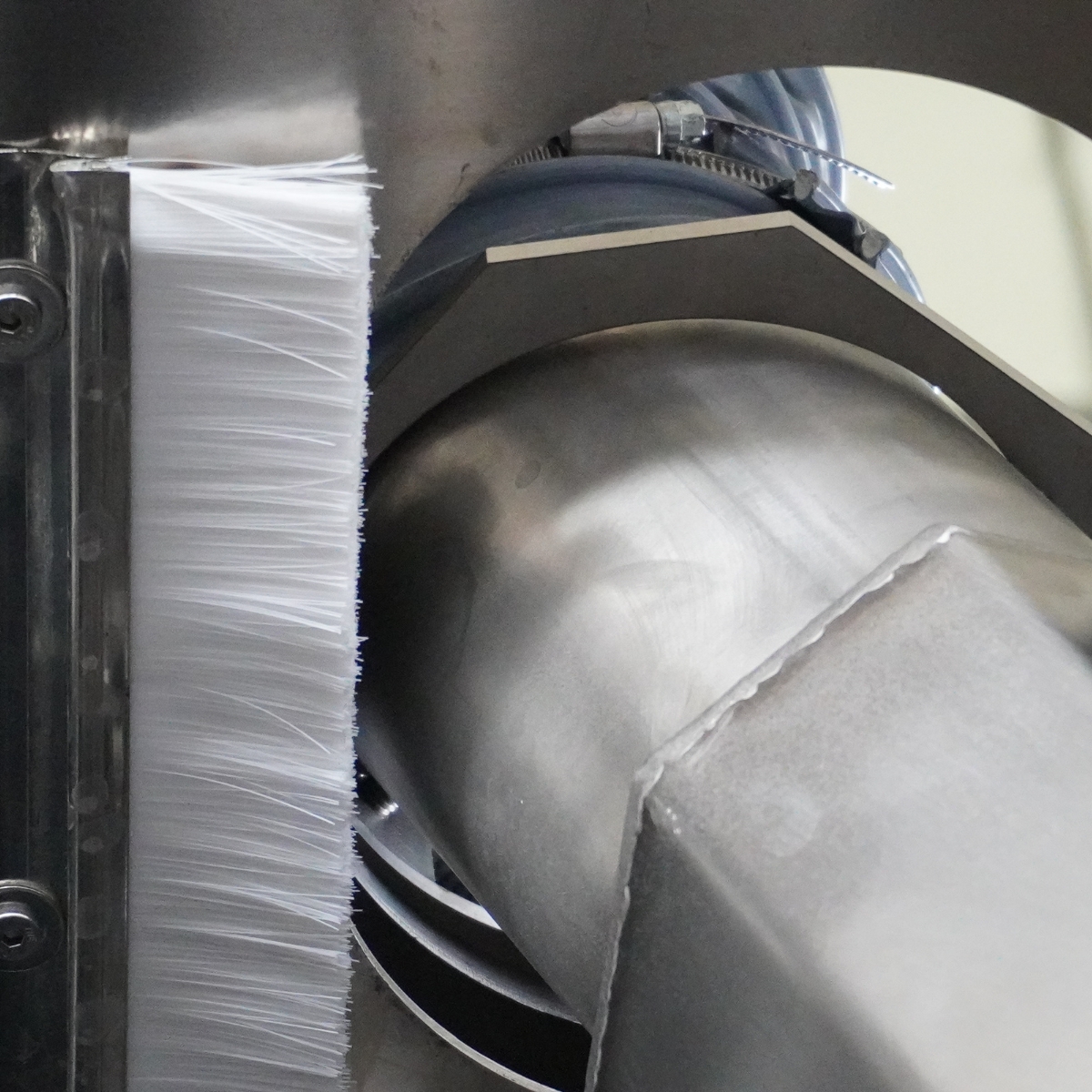Automatic robotic sealing machine
The automatic robotic sealing machine manufactured by Marval adds the final seal to already coupled and pressed rectangular insulating glass panels, thereby ensuring perfect corner sealing and maximum speed. “ROBO SEAL” is available in four versions: 2,000, 2,500, 2,800 and, on request, up to 3,250 millimetres long.
A chain conveyor system equipped with plugs to support the glass sheets prevents contact with the sealed part, while a front suction cup ensures that it moves precisely and correctly.
The extruder, the beating heart of this machine, can dispense any type of sealant – whether it is polyphosphide, silicone or polyurethane based – or other products on the market.
A multi-axis CNC controller programs and controls every step of the process, thus ensuring a perfect finish even if the spacer is not positioned correctly.
This high performance machine can be implemented in existing insulating glass production lines.

Outfeed conveyor
The outfeed conveyor is made up of chains fitted with special dowels. They only support the glass on the external edge: this prevents the sealant applied on the bottom side of the glass from soiling the transport system and the following glass sheets as a result.
The outfeed conveyor is split into two parts, so as to allow the sealing of one glass while a second remains on the unloading station.
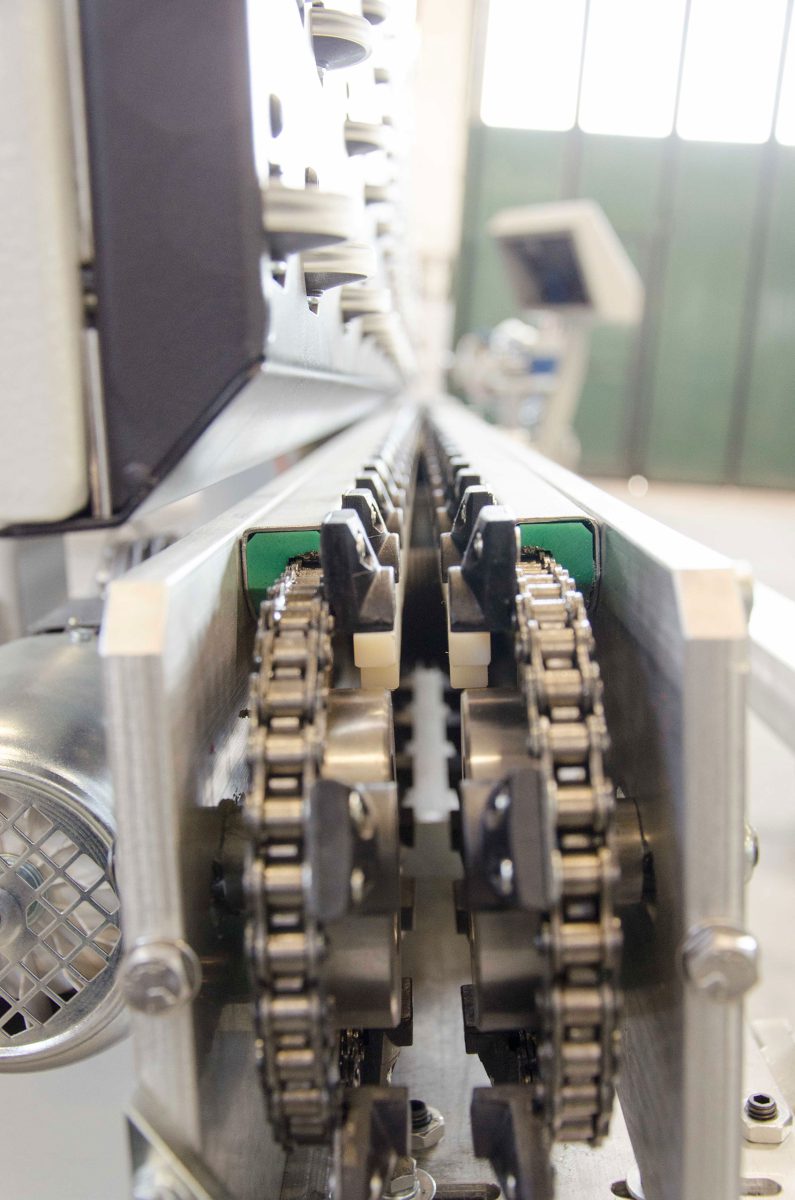
Mobile suction cups
During the various processing phases, glass is transported and positioned by a pair of mobile suction cups moved by a linear actuator.
The numerically-controlled brushless drive moves the glass forward at variable speed in relation to the amount of sealant to be applied.
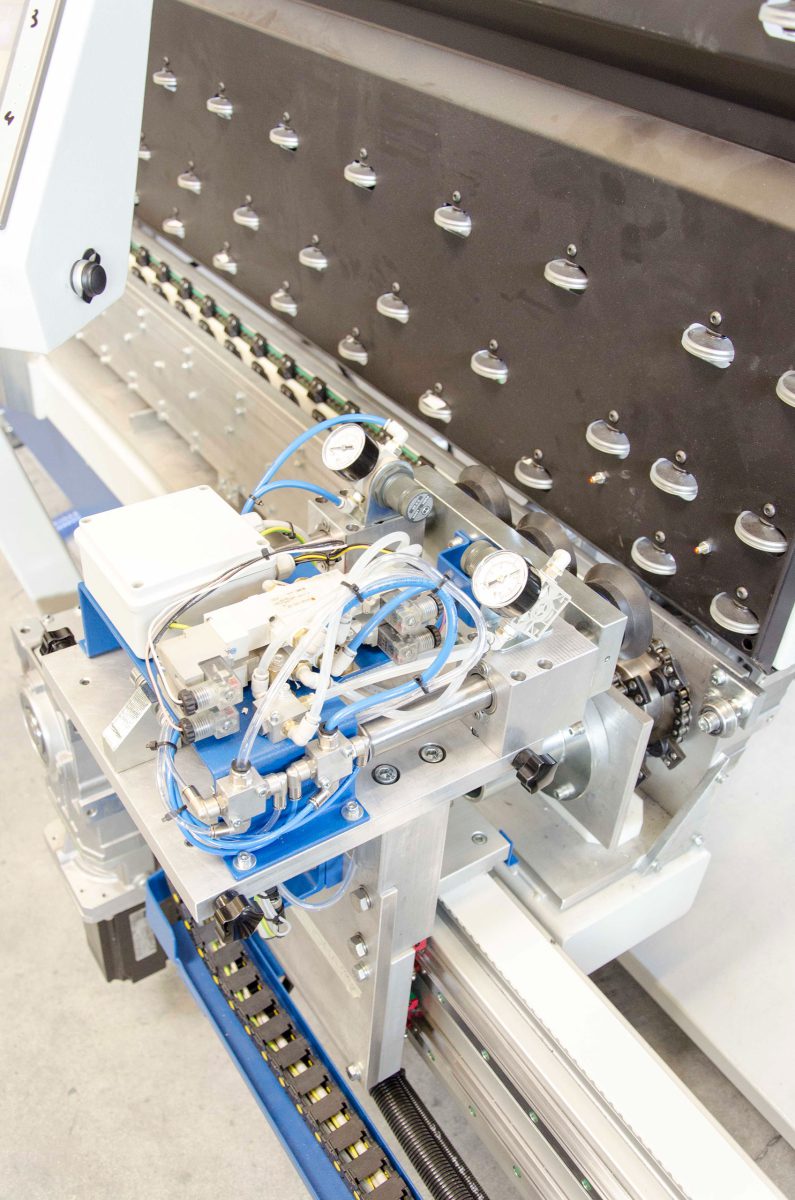
Sealing head
The sealing head is the heart of the machine: this is where most of the equipment that ensures the correct application of the sealant is located.
The structure moves along a vertical axis controlled by a linear actuator that allows the sealing gun to apply the sealant on the two vertical sides of the glass.
It also features the extrusion gun with the related movement system to approach the glass; the spatula to finish the corners; the depth sensor that detects the distance from the edge of the glass to the groove and sends the information required to manage the product application speed to the numerical control.
A dedicated lifting system vertically moves the pumps and the “pressing plates” inserted inside the drums containing the product.
